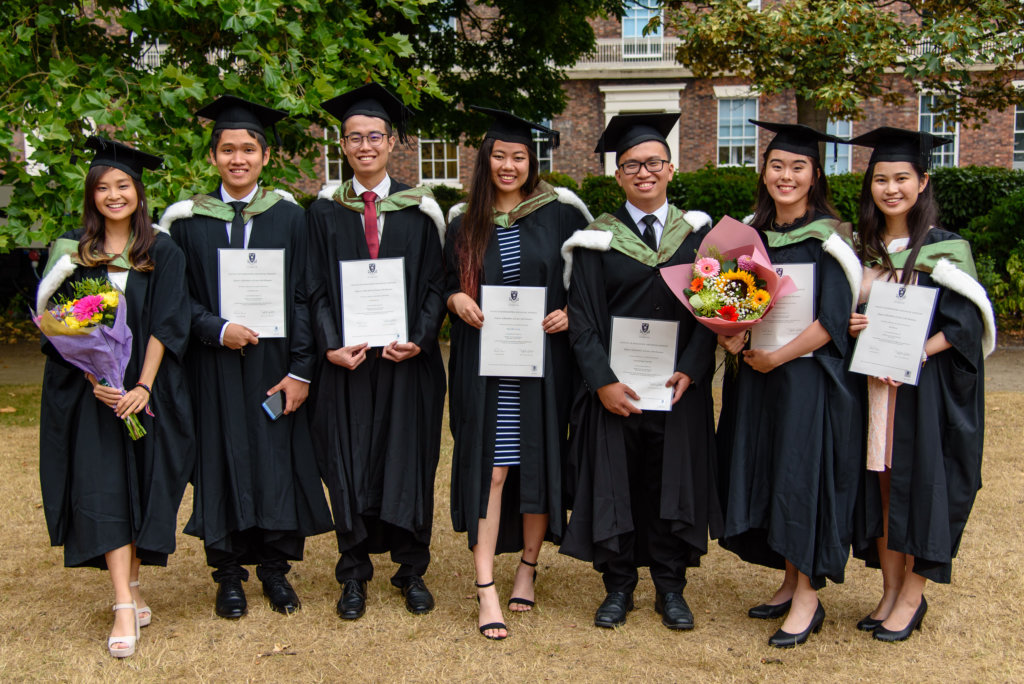Countless students head to Liverpool every year for good reasons: it is warm, friendly, vibrant, diverse and welcoming. Voted as one of the top five friendliest city in the world by Rough Guides, the city is home to over 7,000 international students, with six in 10 graduates choosing to remain in the city after their studies.
Like the city in which it is based, the University of Liverpool opens its doors to students from all walks of life. International Human Rights Law LLM student Amy Knowles came here not only in pursuit of a traditional yet progressive legal education but for the university’s fantastic environment. “I completed my undergraduate degree at the University of Manchester but wanted my postgraduate studies to be both part-time and specialising in human rights law,” says Knowles. “I grew up in between the two cities and have always loved Liverpool, plus the course here looked perfect for me, so I thought I’d give it a go!”
Liverpool Law School offers research-led programmes that inspire and challenge students to reach their potential. They help students develop as independent learners and researchers, gaining valuable skills for their careers.
Research projects from the Liverpool Law School have real-life impact. According to the latest Research Excellence Framework (REF) 2021 results, the School’s research was assessed as being in the top 10 of all Law Schools for producing research of the highest international impact. Research undertaken by EU Law @ Liverpool has contributed to academic, public, industry and parliamentary debates on the EU constitutional and institutional laws that govern the European Single Market and the free movement of citizens. Research by the European Children’s Rights Unit has informed understanding, law and policy around the impacts of Brexit on immigrant children’s legal status and rights. The Law and Non-Communicable Diseases Unit researches the impact of the tobacco, alcohol and food industries on children’s health. The work of Dr Greg Messenger and Dr Mavluda Sattorova help parliamentarians tackle challenges of industrial strategy and UK trade policy, as well as international organisations such as the UN and OECD on the adoption and implementation of international rules governing foreign investment.

Students conduct intensive research on diverse areas, gaining transferable skills much-needed in today’s world. Source: University of Liverpool
Student Matilda Clough, who pursued the LLM (General) programme before progressing onto a PhD, loves that the research-led programmes at the school boosted her professional skills. “My master’s helped me get more experience in research and made me even more interested in the critical evaluation of law,” says Clough. “It has taught me a great deal about independent working, time management, and analytical perspective.”
The LLM (General) programme allows students to mix subjects according to their interests. No matter which subject you choose, you will gain access to a variety of career prospects, from careers in the UN and international organisations to roles in commerce, management, banking and more. During the 12-week Legal Research Training, you will join a forum for contextualising and enhancing the development of research skills, analytical skills, critical thinking skills, and academic writing skills that occurs in substantive modules, and more.
For those with a strong passion for human rights, look no further than the International Human Rights Law LLM. You will explore advanced modules that will equip you with in-depth knowledge and understanding of international law on international relations, emphasising human rights issues and their relevance to domestic law.
Meanwhile, Anna Griffin, who studied medicine as an undergrad, chose the Law, Medicine and Healthcare LLM programme. “I study Medicine at the University of Liverpool and have taken a year to intercalate in Law. There was no question that Liverpool was the place I wanted to stay and study for another year,” says Griffin. Anyone interested in medical law can pursue the programme — they will explore legal-related issues in the field of medicine and gain advanced specialist knowledge in preparation for medical-legal practice in hospitals and health institutions, among others.

Students at the University of Liverpool participate in the Liverpool Law Clinic, giving free and confidential legal advice to the public. Source: University of Liverpool
Pair civic engagement opportunities with research-led academics, and it’s no wonder that graduates here are highly sought-after. They engage in workshops, talks, training sessions, career events, internships and pro bono projects. They can also participate in the School’s multiple award-winning Liverpool
Law Clinic, which is staffed by seven in-house legal practitioners and offers free and confidential legal advice to members of the public on matters relating to special educational needs and disability, immigration, asylum and statelessness, and family law. It’s an excellent way for students to gain professional experience — enhancing their employability, boosting their confidence and making a difference.
Knowles is confident she will become career-ready. “My studies will help my career prospects as they have given me a much deeper understanding of the areas of the law which I’d like to specialise in, as well as helping me network and improve my research skills,” she says.
Top this off with Liverpool city life, and there’s nothing quite like it. Clough can attest to this: “Alongside enjoying the studying and research aspect of my course, I love living in Liverpool. It’s a vibrant city that I’d recommend to anyone thinking about postgraduate study.”
Follow the University of Liverpool on Facebook, Instagram, Twitter, YouTube and LinkedIn












